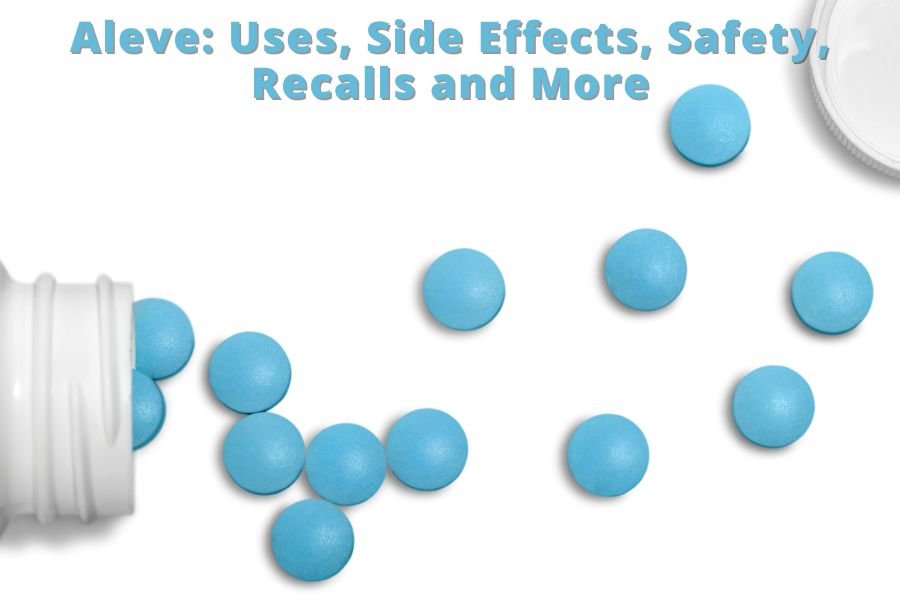
Aleve is a brand name for the over-the-counter medication containing the active ingredient naproxen sodium. Naproxen is a nonsteroidal anti-inflammatory drug (NSAID) that is commonly used to relieve pain, reduce inflammation, and lower fever. It is often used to treat conditions such as headaches, muscle aches, menstrual cramps, arthritis, and minor injuries.
Although rare, some individuals may experience more serious side effects from taking Aleve. These can include:
- Allergic reactions
- Stomach ulcers or bleeding
- Kidney problems
- Liver damage
- High blood pressure
It is important to consult with a healthcare professional before taking Aleve if you are pregnant, planning to become pregnant, or breastfeeding. While there is limited evidence suggesting that Aleve may be safe during pregnancy, it is generally not recommended, especially in the third trimester.
Children under the age of 12 should not take Aleve unless specifically directed by a healthcare provider.
As of the time of writing, there have been no recent recalls of Aleve reported. However, it is always important to check for any recalls or safety alerts from the manufacturer or the U.S. Food and Drug Administration (FDA) before using any medication.
Aleve received FDA approval in 1991 and has since been widely used for pain relief and inflammation management. The FDA approval ensures that the medication has undergone rigorous testing to demonstrate its safety and efficacy when used as directed.
Aleve is prescribed to provide temporary relief from pain and inflammation associated with various conditions, such as arthritis, menstrual cramps, and muscle aches. It can help improve mobility and enhance the overall quality of life for individuals suffering from these conditions.
Aleve should be taken as directed by a healthcare professional or according to the instructions on the packaging. The usual recommended dose for adults is one tablet every 8 to 12 hours, or as needed, with a maximum daily dose of two tablets in a 24-hour period. It is important not to exceed the recommended dosage to avoid potential side effects.
In addition to its primary use as a pain reliever and anti-inflammatory medication, Aleve may also be used off-label for other conditions, as determined by a healthcare professional. However, it is important to consult with a healthcare provider before using Aleve for any unapproved uses.
Before taking Aleve, it is essential to inform your healthcare provider about any existing medical conditions, allergies, or medications you are currently taking. Aleve may interact with certain medications or exacerbate certain medical conditions, such as asthma, high blood pressure, or kidney problems.
Aleve should be stored at room temperature, away from moisture and heat. It is important to keep it out of reach of children and pets. If you no longer need the medication or it has expired, it is recommended to dispose of it properly according to local guidelines or consult with a pharmacist.
If you suspect an overdose or experience severe symptoms after taking Aleve, such as difficulty breathing, chest pain, or loss of consciousness, seek immediate medical attention or contact your local poison control center.
While Aleve can provide effective pain relief, it is important to use it responsibly and follow the recommended dosage. Prolonged or excessive use of Aleve may increase the risk of side effects. It is always advisable to consult with a healthcare professional for personalized advice and guidance regarding the use of Aleve or any other medication.
When used as directed, Aleve is generally considered safe for most individuals. However, like any medication, it carries some risks, and it is important to be aware of potential side effects and precautions. It is crucial to use Aleve responsibly and consult with a healthcare professional if you have any concerns or questions.